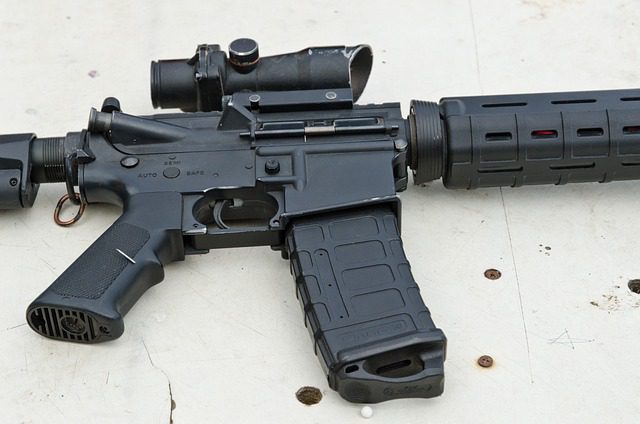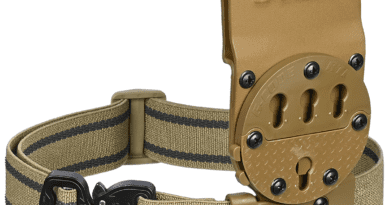The TRUTH About Buying a Firearm: You’re Being Lied To
There’s nothing worse than a bunch of people spreading lies and misinformation to push an agenda. Unfortunately, that’s precisely what we are all experiencing these days when it comes to firearms. The media, politicians, and government all want you to believe we live in a lawless society where buying a firearm can be done by anyone and without any regulation or restrictions required.
The good news is that there are people out there shedding light on the nonsense coming out of their mouths to disprove and dismiss much of the idiocies we are hearing and reading these days.
Make no mistake, these individuals don’t want you buying a firearm. In fact, they want to completely destroy the 2nd Amendment and weaken the population. Why? Who knows. But it certainly feels like they want to strip away our rights in a power play of total and utter control over the population. This is where “Shall Not Be Infringed” is carved in stone, and we all have the right to bear arms, defend ourselves from those who want to harm us, and prevent a tyrannical government from holding all the power. The power is in the people, and buying a firearm is one of your rights.
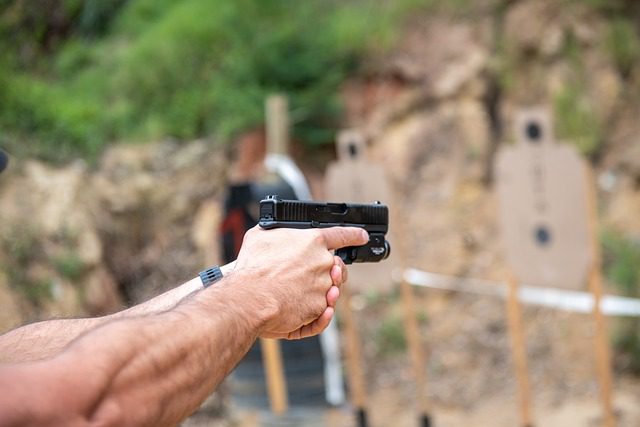
In this article, I want to explain the entire process of purchasing a firearm from a gun shop in the United States. It’s important to note that gun laws and regulations may vary by state and locality, so the process may differ slightly depending on where you are (please do your own research on your state and locality to ensure you understand the process where you live). However, I will provide a general overview of what typically happens.
Disclaimer: This article contains information about buying a firearm at the time this was published. At any given moment, laws can change, which makes it important to confirm the information below with your state and local laws.
Table of contents
- Why Would Someone Consider Buying a Firearm?
- How Old Must You Be When Buying a Firearm?
- Can Anyone Purchase a Firearm in the United States?
- The Process of Buying a Firearm
- What Does a Background Check Actually Do and Look for When Buying a Firearm?
- What is Form 4473 You Fill Out When Buying a Firearm?
- Is There Truth to “Gun Show Loopholes” That Media & Politicians Talk About?
- Common Myths You Need to Understand About Buying a Firearm
- How Do Criminals Get Their Hands on Firearms?
- Now You Know the Truth About Buying a Firearm
Why Would Someone Consider Buying a Firearm?
Let’s kick things off with the obvious question that many people ask… “Why would you consider buying a firearm?” It could be something as simple as a pistol or even something like the “dreaded and deadly” AR-15 that these puppets like to discriminate as “assault weapons,” which anyone who understands the definitions knows is a lie.
Related Article: A New Firearm Buyer’s Guide to Choosing an EDC Pistol

But for starters, it’s their right to bear arms and support their 2nd Amendment right when considering buying a firearm. That said, there are many reasons why someone may consider buying a firearm. Some of the most common reasons include the following:
- Self-Defense: Many people purchase firearms for personal protection and to defend themselves and their homes in the event of a threat.
- Hunting: Firearms are commonly used for hunting and are necessary tools for harvesting game to be used to put food on their table.
- Recreational Shooting: Shooting can be an enjoyable and challenging hobby, and many people are buying a firearm to go to a gun range and shoot for fun and entertainment.
- Collection: Some people collect firearms as a hobby, either for their historical or monetary value.
- Competitive Shooting: Shooting competitions can be a fun and challenging sport, and many people purchase firearms for this purpose.
- Professional Use: Law enforcement, military personnel, and security professionals may purchase firearms as part of their job requirements. After all, we would want these people armed to help protect lives.
It’s important to note that owning and buying a firearm comes with a lot of responsibility and should be taken seriously. Anyone who is considering purchasing a firearm should research the legal requirements in their area, receive proper training on how to safely handle and operate the firearm, and practice safe firearm storage and handling techniques to prevent accidents or unauthorized access to the firearm.
How Old Must You Be When Buying a Firearm?
The minimum age when buying a firearm in the United States depends on the type of firearm and the state in which the purchase is made.
Federal law prohibits licensed firearms dealers from selling handguns to anyone under the age of 21 and long guns (rifles and shotguns) to anyone under the age of 18.
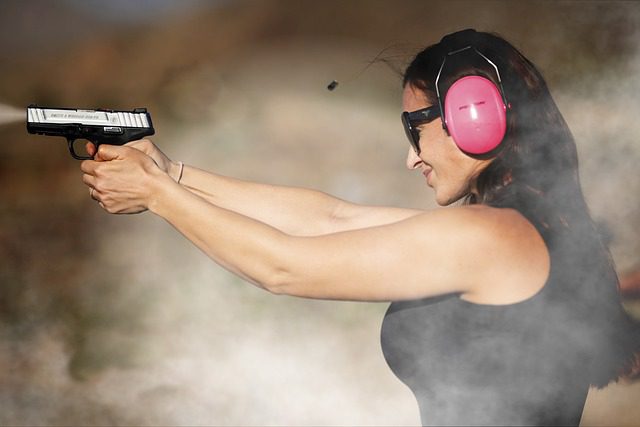
However, some states have their own age restrictions that are more strict. For example, some states prohibit the sale of all firearms to anyone under the age of 21.
Related Article: Armed and Empowered — The Rise of Gun Classes for Women
It’s important to note that even if a person meets the age requirement to purchase a firearm, they must still pass a background check and meet other requirements set forth by state and federal law.
Can Anyone Purchase a Firearm in the United States?
No, not just anyone can buy a firearm in the US. Federal and state laws impose a number of restrictions on who is allowed to purchase firearms, and there are certain categories of people who are prohibited from doing so.
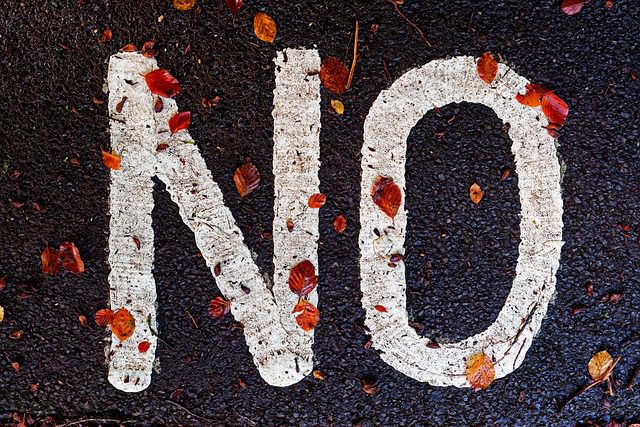
Under federal law, the following categories of people are prohibited from buying a firearm:
- Convicted felons
- Fugitives from justice
- Individuals who are addicted to drugs or alcohol
- Individuals who have been adjudicated as mentally defective or who have been committed to a mental institution
- Illegal aliens
- Individuals who have been dishonorably discharged from the military
- Individuals who have renounced their US citizenship
- Individuals who are subject to certain domestic violence restraining orders or who have been convicted of certain domestic violence offenses
- Individuals who have been convicted of certain other crimes, such as misdemeanor crimes of domestic violence, stalking, or drug offenses
In addition to these federal restrictions, many states have their own laws regarding who is allowed to purchase firearms, and these laws can be more strict than federal law.
The Process of Buying a Firearm
Despite what the media, government, and politicians tell you, the process of buying a firearm isn’t as simple as walking into a gun store, pointing out the firearm(s) you want to buy, whipping out your credit card, and out the door you go.
Related Article: The Taxing Truth — What You Need to Know About SBR Tax Stamps
Below, I lay out the general process for most states in the US (not all states or localities have the same process, but ALL do background checks as it’s a requirement for all FFLs).
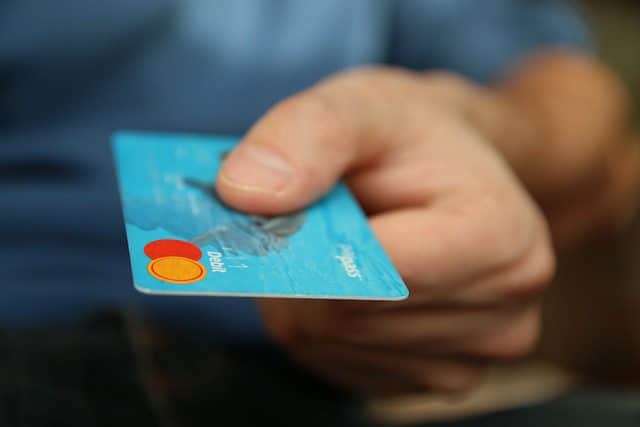
It is important to do your own research to better understand the process in your state so that you are aware of what you need to bring with you and the requirement when buying a firearm.
1. Choose a licensed gun dealer
The first step is to choose a licensed gun dealer (FFL), which can be done by searching online or asking for recommendations from friends or family members. Selecting a licensed dealer is important, as they are required by law to conduct background checks and follow other regulations.
2. Fill out paperwork
When you arrive at the gun shop, you will be asked to fill out some paperwork. This paperwork typically includes a form called the ATF Form 4473, which collects information about you, the firearm you want to purchase, and your criminal history. The form asks for basic personal information, such as your name, address, date of birth, and questions about your criminal history and mental health. Lying on this form is a federal offense and can put you in jail.
3. Show identification
You will also be asked to show a government-issued photo ID, such as a driver’s license or passport. This is to verify your identity and ensure that you are legally allowed to purchase a firearm.
4. Background check
After you fill out the paperwork and provide your ID, the gun dealer will run a background check on you. This is done by calling the FBI’s National Instant Criminal Background Check System (NICS), a database containing information about people prohibited from owning and buying a firearm. The background check typically takes just a few minutes to complete.
5. Wait for approval
If you pass the background check, the gun dealer will receive approval to proceed with the sale. Depending on your state, there may be a waiting period before you can actually take possession of the firearm (this is very controversial as many believe it’s unconstitutional to make someone wait when buying a firearm). This waiting period is typically between 2 and 10 days and is intended to give law enforcement officials enough time to conduct additional checks if necessary.
6. Pay for the firearm
Once you have been approved to purchase the firearm and any waiting period has passed, you will be asked to pay for the firearm. The price of the firearm will vary depending on the make and model, as well as any additional accessories or features you choose to purchase.
7. Complete the transaction
After buying a firearm, the gun dealer will complete the transaction by giving you the firearm, along with any necessary paperwork, such as a receipt or warranty information. The gun dealer may also provide you with information on how to properly store and handle the firearm, as well as any other legal requirements you need to be aware of.
What Does a Background Check Actually Do and Look for When Buying a Firearm?
When purchasing a firearm, a background check is typically conducted to ensure that the buyer does not have a criminal record or any other disqualifying factors that could prevent them from legally owning a firearm.
The background check process involves submitting the buyer’s personal information, such as name, date of birth, and Social Security number, to the National Instant Criminal Background Check System (NICS). The NICS database contains information from various sources, including state and federal criminal records, as well as mental health records and other relevant data.
The background check looks for specific factors that could disqualify the individual from buying a firearm, including:
- Criminal Record: The check will look for any past convictions or pending charges, especially those related to violent crimes, domestic violence, drug-related offenses, or other felony-level offenses.
- Mental Health: The check will also look for any mental health issues or history of involuntary commitment to a mental health facility.
- Restraining Orders: If the buyer is subject to a restraining order, it may prevent them from purchasing a firearm.
- Immigration Status: Non-citizens may be disqualified from purchasing a firearm, depending on their immigration status.
If the background check reveals any of these disqualifying factors, the buyer may be denied the right to purchase a firearm. In some cases, the buyer may be able to appeal the decision or seek a waiver, but these options can be complicated and time-consuming.
What is Form 4473 You Fill Out When Buying a Firearm?
Form 4473, also known as the Firearms Transaction Record, is a legal document that must be completed by anyone buying a firearm from a licensed dealer in the United States. The form collects personal information about the buyer and confirms that the buyer is legally allowed to purchase and possess a firearm.
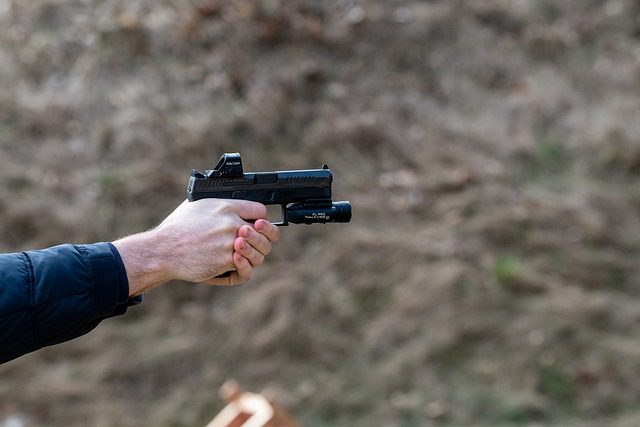
The information collected on Form 4473 includes the buyer’s name, address, date of birth, and other identifying information. The form also requires the buyer to answer a series of questions related to their eligibility to purchase a firearm, including questions about their criminal history, drug use, mental health status, and citizenship status.
Related Article: How To Get a PA Concealed Carry Permit
The form is completed by the buyer at the time of purchase in the presence of the licensed dealer. The dealer is then required to verify the buyer’s identification and conduct a background check using the information provided on the form, as well as any other relevant information.
Once the background check is complete and the buyer is confirmed to be eligible to purchase a firearm, the dealer will complete the remaining sections of the form, including information about the firearm being purchased and the sale price. The buyer and dealer will both sign the form, and the dealer will keep a copy of the form on file.
Form 4473 is an important document that helps ensure that firearms are purchased and sold responsibly and legally. It is a vital part of the background check process and is used to help prevent firearms from ending up in the hands of individuals who are not legally allowed to possess them.
Is There Truth to “Gun Show Loopholes” That Media & Politicians Talk About?
If you believe anything the media, government, and politicians tell you, I have a bridge to sell you. All jokes aside, contrary to popular belief, there is no “gun show loophole” that allows people to purchase firearms from gun dealers without a background check at gun shows.
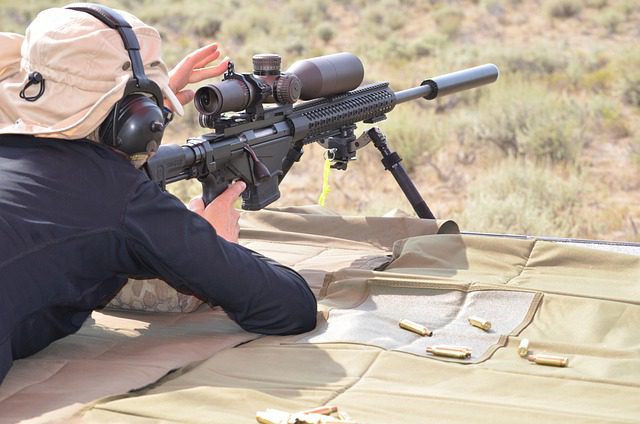
Federal law requires licensed firearms dealers to conduct background checks on all firearms purchases, whether the sale takes place in a store, at a gun show, or online.
Common Myths You Need to Understand About Buying a Firearm
There are many myths and misconceptions about buying a firearm out there, generally used by people who are pushing gun control or who simply don’t understand laws and regulations about buying a firearm. Here are a few common myths and their debunking truths:
Myth: You don’t need a background check when buying a firearm at a gun show.
Reality: Federal law requires licensed firearms dealers to conduct background checks on all firearm sales, whether they take place at a gun show or a brick-and-mortar store.
Myth: You can buy a fully automatic firearm (machine gun) without any restrictions.
Reality: While many people wished this was true, it’s not. It is highly regulated and difficult to legally purchase a fully automatic firearm in the US. The National Firearms Act (NFA) of 1934 imposes strict regulations on manufacturing, transferring, and possessing machine guns and other firearms that fall under the category of “Title II weapons.” These regulations include a lengthy application process, a $200 tax stamp, and approval from the Bureau of Alcohol, Tobacco, Firearms, and Explosives (ATF).
Myth: You don’t need to show ID when buying a firearm.
Reality: Federal law requires all firearm purchasers to show a valid form of identification, such as a driver’s license or passport, and to complete form 4473, which includes personal information and a questionnaire about eligibility to purchase firearms.
Myth: You can buy a firearm online and have it shipped directly to your home without any background check.
Reality: Online firearm sales are subject to the same background check requirements as sales in brick-and-mortar stores. If you purchase a firearm online from a licensed dealer, the firearm must be shipped to a licensed dealer (FFL) in your state, who will conduct the background check and transfer the firearm to you.
Myth: Buying a firearm for someone else who cannot pass a background check is possible.
Reality: Buying a firearm for someone who cannot pass a background check is illegal and known as a “straw purchase.” This is a federal crime and can result in fines and imprisonment.
How Do Criminals Get Their Hands on Firearms?
Gun control is not the answer, and preventing Americans from buying a firearm will not make any state safer. Why? Because criminals don’t follow the law. Eliminating all firearms from the US may sound like a great idea, but it will never happen. Criminals will always find a way to get their hands on firearms without actually buying a firearm legally.
There are various ways in which criminals may obtain firearms. Some of the most common methods include:
- Illegal Gun Trafficking: Criminals can acquire firearms through unlawful gun trafficking networks, where firearms are smuggled across borders or stolen from legal owners and sold on the black market.
- Straw Purchases: This involves a person who can pass a background check legally purchasing a firearm on behalf of someone who cannot, such as a convicted felon. This is illegal.
- Theft: Criminals may steal firearms from individuals, gun stores, or other sources.
- Family or Friends: Sometimes, criminals may acquire (steal) firearms from family members or friends who own firearms legally.
It’s important to note that not all firearms used by criminals are obtained illegally. Some firearms may have been legally purchased by the criminal or stolen from a legal owner.
Now You Know the Truth About Buying a Firearm
Anyone who takes what the media, government, or politicians say about buying a firearm at face value is doing themselves a disservice. Their manipulative words and promotion of anti-2A campaigns are full of lies and are meant to further convince those who don’t know any better of the “dangers” of buying a firearm and why no one should have “weapons of war,” as they like to call them as a scare tactic.
Related Article: How to Harden Your Home & Protect Your Family from Intruders
The fact is you have the right to bear arms, and it shall not be infringed. Buying a firearm is something that comes with great responsibility but is also necessary for many reasons mentioned above. So, before you start reposting what anti-gunners say about buying a firearm and how guns are bad, be sure you do your own research on the subject to uncover the truth.
As a side note to close out this article, if you want to support our website and are in need of any tactical gear (or any product for that matter), anything you purchase using our links below will provide us with a small commission. We don’t charge for our free content and our goal is to keep it that way. We don’t have a Patreon account to put things behind a paywall, nor do we sell pics of our feet on OnlyFans.
If you choose to use the links below and make a purchase (at no additional cost to you), we greatly appreciate your support as it helps us continue to publish free content (like this article) on our website:
- Optics Planet (use code SAS5 at checkout for 5% off)
- Amazon
We have also partnered with CCW Safe. It’s the concealed carry coverage that I personally have for myself and my family in the event we need to defend our lives. Feel free to use our CCW Safe link to sign up and get some coverage to protect yourself and your family.
Also if you have a product you would like us to check out and potentially review, please contact us and let’s discuss.
If you found value in this article, please consider sharing it on social media (and tagging people who need to read it) or linking to it on your blog or website. We must ensure the TRUTH is out there when owning and buying a firearm and not allow anti-2A campaigns to create a false narrative. If you honor and want to protect your right to bear arms, please get this in front of as many people as possible.


*Disclosure: This article may contain affiliate links or ads, which means we earn a small commission at no extra cost to you if you make a purchase through these links. These commissions help support the operation and maintenance of our website, allowing us to continue producing free valuable content. Your support is genuinely appreciated, whether you choose to use our links or not. Thank you for being a part of our community and enjoying our content.
PLEASE CONSIDER SHARING THIS ON YOUR SOCIAL MEDIA TO HELP OTHERS LEARN MORE ABOUT THIS TOPIC.


